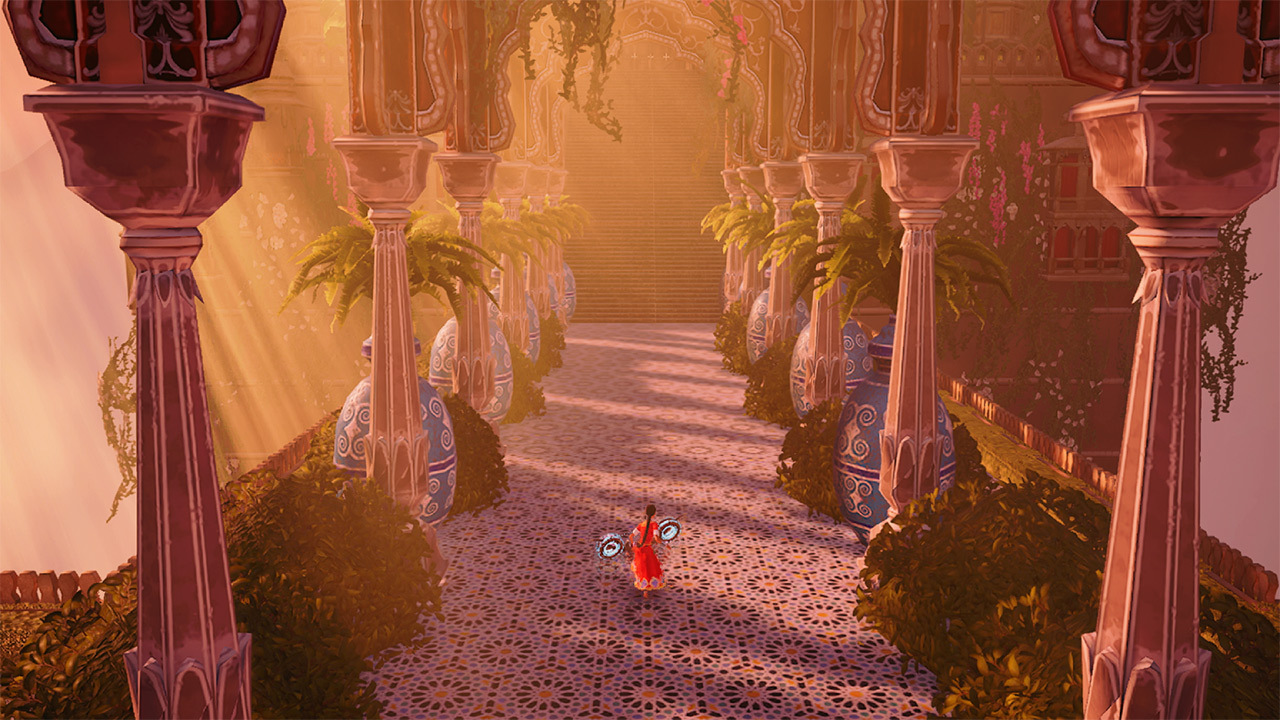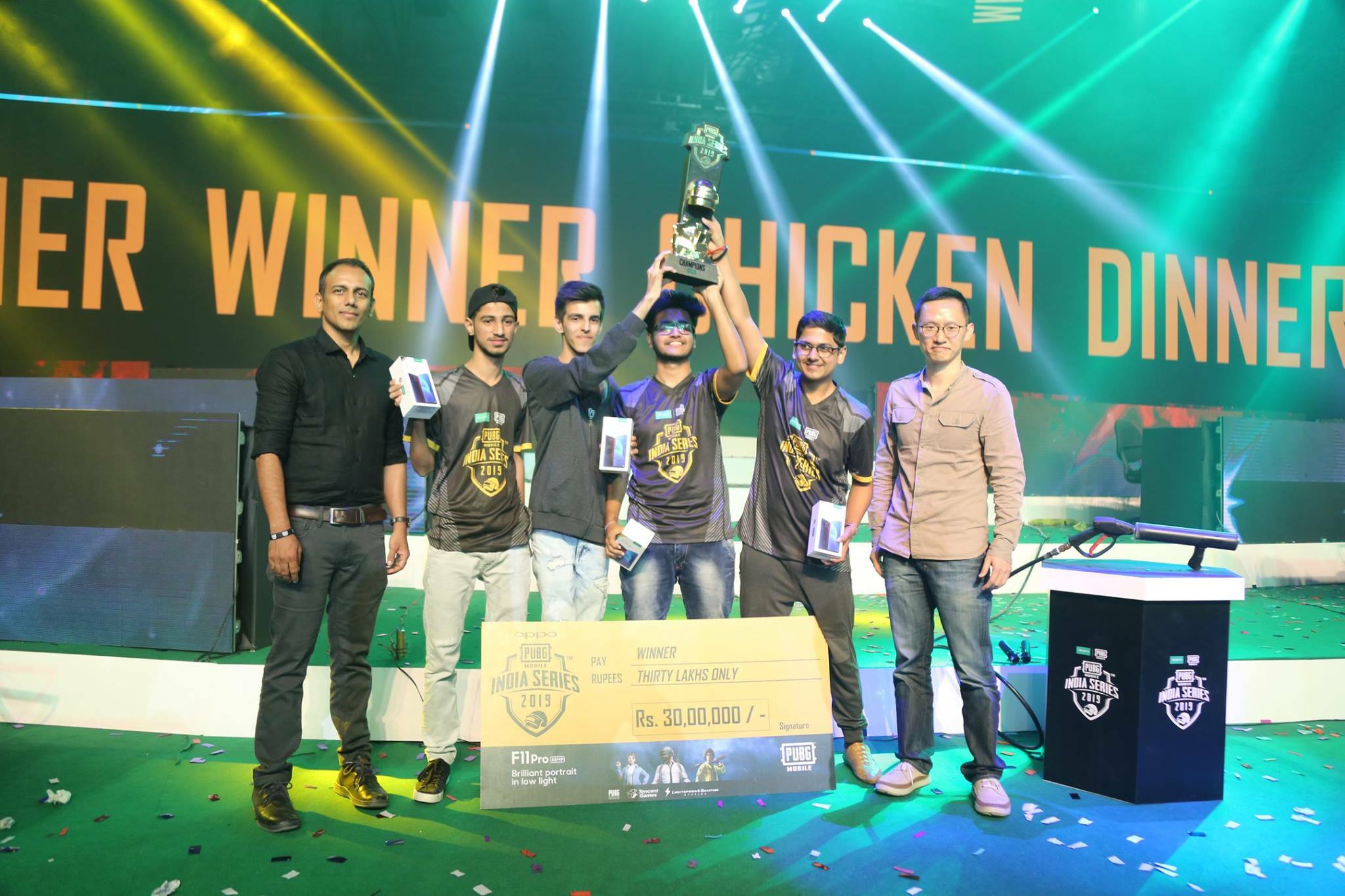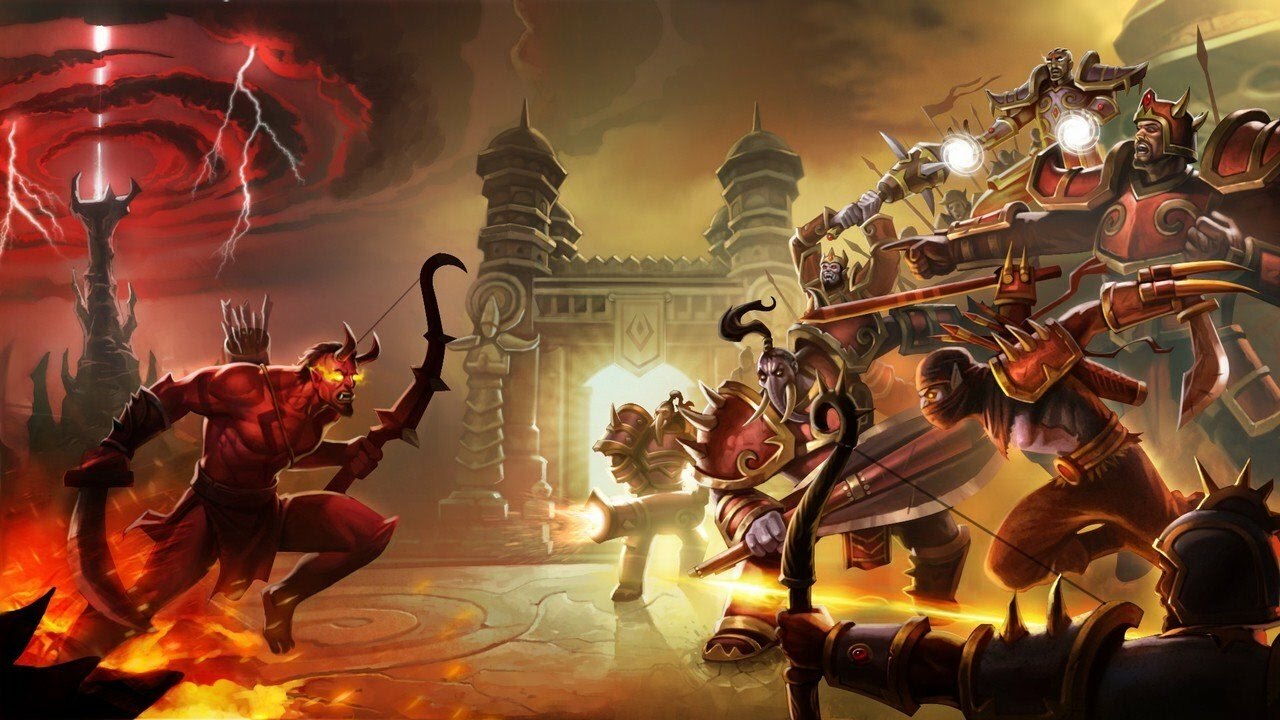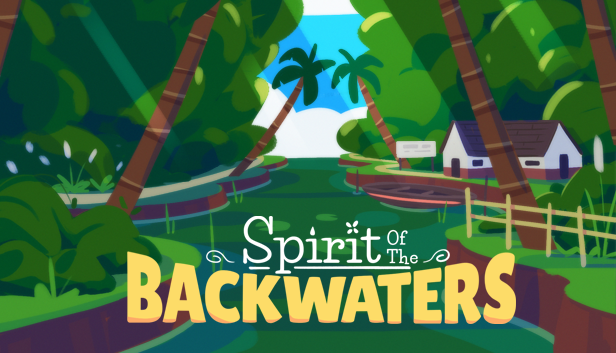Spirit of the Backwaters by RuralBandit is a cozy rural-life sim set in rural Kerala that allows the players to learn the art of toddy tapping.
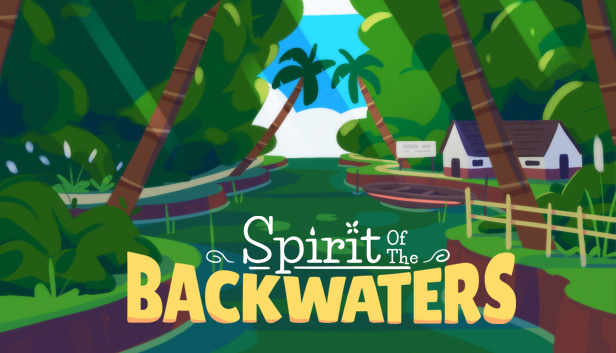
Gaming in India is seeing a huge boom and so is the indie games. Many indie developers are making games based on India's culture and heritage, with several getting recognition from fans and gaming giants like PlayStation and Xbox.
One such indie game based in India that has caught fans' attention is Spirit of the Backwaters by RuralBandit. Being one of the few games that highlights Kerala's customs and culture, it has a great deal of potential to enthrall players everywhere. The game offers a world of fascinating possibilities and allows players to learn the art of toddy tapping.
Recently, we had the opportunity to talk to RuralBandit, the solo developer of Spirit of the Backwaters to discuss the game's development, gameplay, features, challenges, and more.
RuralBandit: The Solo Developer of Spirit of the Backwaters
Could you introduce yourself and give us a brief background of RuralBandit?
I'm a solo game developer working under the pseudonym/studio name 'RuralBandit'. I come from an art background and have worked in India at a couple of design studios in Bangalore and as a freelance illustrator/animator. Spirit of the Backwaters is my first commercial game.
Can you share more about your move to the UK and the transition from working in a car production plant to becoming a game developer?
I moved here with my wife to the UK three years ago as she had gotten accepted into Oxford University at the time. Expecting to find design jobs here while she pursued her Masters, none of my job applications progressed toward even an interview. That's how I ended up doing warehouse jobs. I was a bit fed up with the advertising field at the time and never bothered to look back. It was while I was at the car production plant that the idea to turn into game dev came up.
It's funny, I expected to be out of such jobs in less than a year at that point, hoping for some miracle. But the transition to being a full-time game developer is yet to happen.
Inspiration Behind Spirit of the Backwaters
Spirit of the Backwaters is your first game, what inspired you to create this title and how long has it been in development?
The biggest inspiration for Spirit of the Backwaters is the indie classic from 2016, Stardew Valley. Having played the game back at the beginning of the Covid era, it was a pretty obvious choice what kind of game it would be as it turned out to be one of my favourites.
The initial idea for the game mechanics and setting was formed gradually over a period of a few months into the start of production back in April 2022. Once the decision was made to turn into game development, I already knew the kind of setting I wanted to explore. Being a Keralite who grew up in a small town, finding inspiration was not a problem. Finding the right one was the challenge.
Being abroad and homesick as well, I remember watching a lot of shows, YouTube Vlogs and documentaries about Kerala. In one such (student-made) documentary, the crew followed the daily routine of a toddy tapper, fisherman and a toddy shop owner. It concluded with all of their hard work ending up as a glass of toddy served along with a delicious meal at the toddy shop, which seemed like the perfect setting for a rural life-sim game.
To have the game set in the Backwaters specifically was mostly a game design choice. It seemed like a good idea to explore farming sim in a world where life revolved around the water.
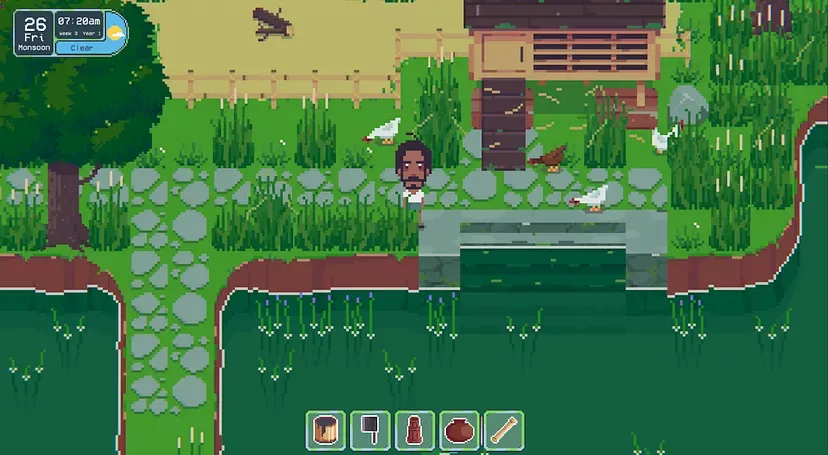
Spirit of the Backwaters, its Gameplay Mechanics and Features
What is “Spirit of the Backwaters” about and what can players expect at launch?
Spirit of the Backwaters is a cozy rural-life sim set in rural Kerala showcasing the fading practice of toddy tapping. It's a traditional alcoholic drink brewed on top of coconut trees. A practice that exists in a few places around the world under different names. It's a mix of life simulation and management with a central narrative driving the game forward. Like other farming sims, there are no set goals to chase.
It is too early to predict what the launch would look like though.
Could you describe the main gameplay mechanics of Spirit of the Backwaters?
Players move into a quaint village by the backwaters and learn the art of toddy tapping. So this involves climbing up and down coconut trees brewing Toddy. Later in the game, the player gets to take over and help run and manage the local toddy shop. There are other secondary mechanics like farming, fishing and animal raising, the produce from which can be used to run the toddy shop. Along with these, there will be other mini-games, festivals, and exploration which includes an important game mechanic which I am very excited about showcasing sometime soon.
The description for Spirit of the Backwaters says that this game is set in the lush and idyllic backwaters of Southern India. How did you go about researching the topic and how did you ensure an authentic representation of Southern Indian culture in the game?
As I mentioned, being from a small town in Kerala, the stories, superstitions, culture and beliefs that you grow up hearing, stays with you. Having moved to big cities after school, the appeal of a simpler existence and the desire to follow your roots grows stronger for some people. I found myself immersing myself in content from back home during the initial few months of development. Like watching documentaries, reading a lot of Wikipedia, watching classic Malayalam movies, or just browsing thousands of pictures of Kerala for visual references.
While I wish to portray many things in the game drawing direct inspirations, a lot of creative freedom is also being taken, considering that from a game design perspective, a player unfamiliar with it shouldn't feel completely alienated. In some ways, you can say it's a fictional village set in a world heavily inspired by real-life Kerala.
What aspects of your cultural roots are you most proud to showcase in the game?
To be honest it must be the visual beauty of Kerala actually. I'm probably a bit biased as visuals are my strength.
I think the feelings of familiarity, nostalgia, and the joy of exploring a new place can be evoked by the smallest details, without having the most obvious details given the spotlight. For example, more people got excited about the little banana bunch hung outside an NPC's tea shop (which is a common sight over there) than the Theyyam character that appears in the trailer. For the same reason, I haven't thought about having houseboats in the game yet, which is most associated with the word backwaters. Backwaters is a huge water network that stretches a long way across Kerala and only a small bit of it is known to most outside of Kerala.
So yes, a lot of references wouldn't be a direct/obvious depiction.
Development Journey of Spirit of the Backwaters
What tools and technologies did you use in the development of Spirit of the Backwaters?
It's a simple pixel art game so the tools and other technical requirements are quite minimal in terms of production.
Spirit of the Backwaters is being built in Unity Game Engine. All the art is being made in Aseprite, which is a pixel art software. I use Reason Studios for music and Audacity for sound design. FMOD is used alongside Unity for audio integration.
How do you balance creativity with the technical aspects of game development?
It has been easy for me so far. Being the only person working on the game including music, It's natural that you have a clear picture of every aspect of the game. There is no miscommunication or wrong expectations that could happen when it is a team.
In terms of practicality, I alternate between working on music, art and programming over a period of a few weeks or months. This rotation helps keep the work exciting and fresh.
What were some of the biggest challenges you faced while developing the game?
Initially, it was the programming. Coming from an art background, I used to be very tech-averse, but having no choice, I reluctantly took it up. Surprisingly these days it's the programming that I'm enjoying the most.
There was also the challenge of entering the industry without knowing anyone. Although along the way, I got to know a few fellow developers who were kind enough to guide me and point me in the right direction.
Also, the UK's going through a living cost crisis, so it's not really an ideal time to be dedicating years into developing a game, not knowing the outcome. In total, for an entire year, my wife took on the responsibility of paying the bills allowing me to work full-time on the game. During the other periods, working on the game after coming home from a full-time job had been quite challenging. Most days I need to remind myself that I'm also a game developer. But, having a supportive partner through all of this has been the reason the game has gotten this far!
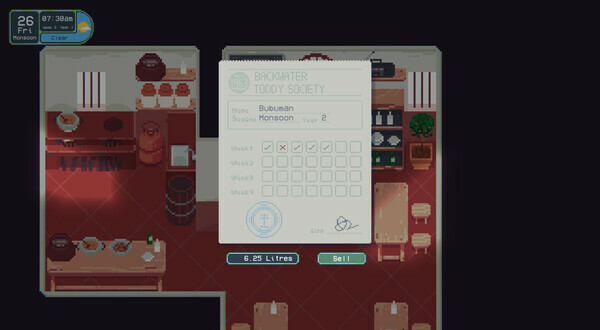
Future Aspects
Spirit of the Backwaters is planned for PC, but, are there plans to bring the game to other platforms?
I cannot confirm this yet, but I am really hoping to have it released on consoles. Fingers crossed!
While it is too early, do you have any future updates or expansions planned for Spirit of the Backwaters?
I can't really predict this as well, sorry! I'm not a fan of DLCs or anything like this, but I would imagine me working on the game post-launch as well, in the form of content updates, and improving the game.
Lastly, what advice would you give to aspiring game developers, especially those working solo?
The game development scene in India is way better than it had been compared to even a few years ago. There are now funding opportunities from companies like Sony, Microsoft, etc that are there to support games that show promise. While I'm not nearly as qualified enough to give advice, I can say for sure that taking part in game jams is a great idea. You get to experience almost every aspect of what it takes to put out a game. It's a great place to start.
Well, as we eagerly await the game's release, "Spirit of the Backwaters" seems like an immersive gaming environment that transports players to the heart and soul of rural Kerala, evoking feelings of comfort, nostalgia, and the joy of exploring a new place.























